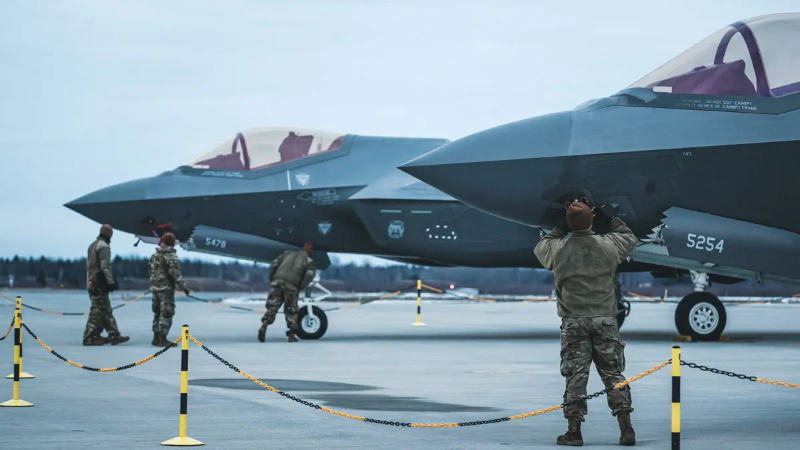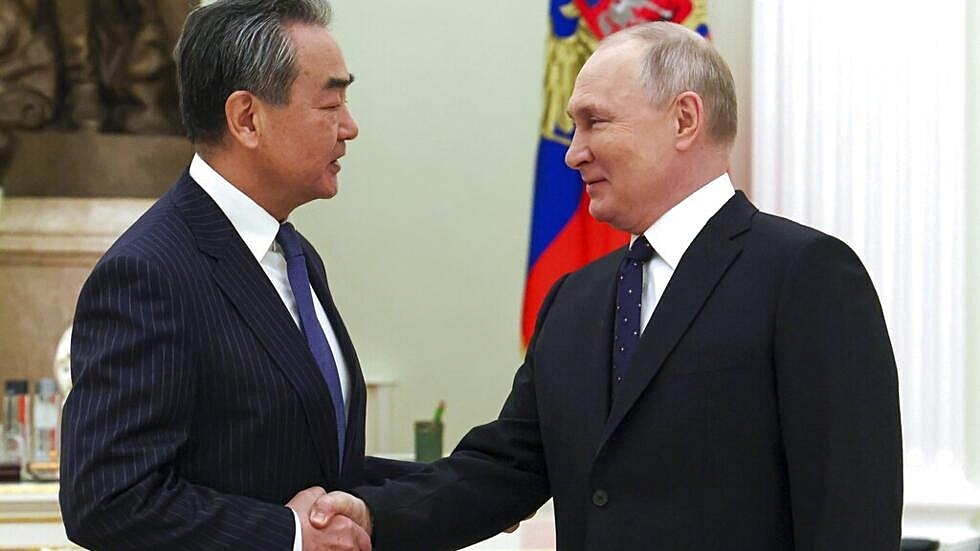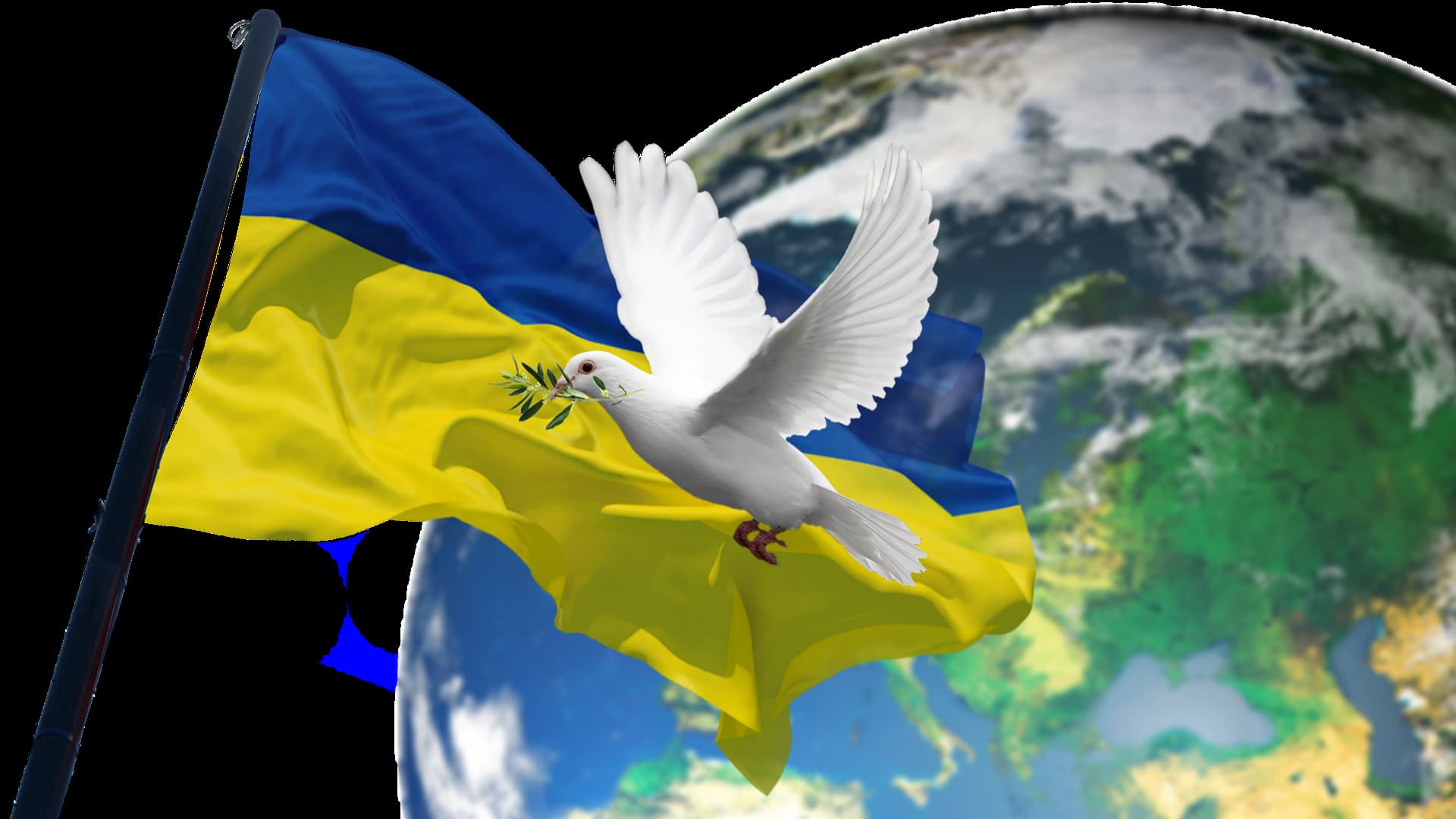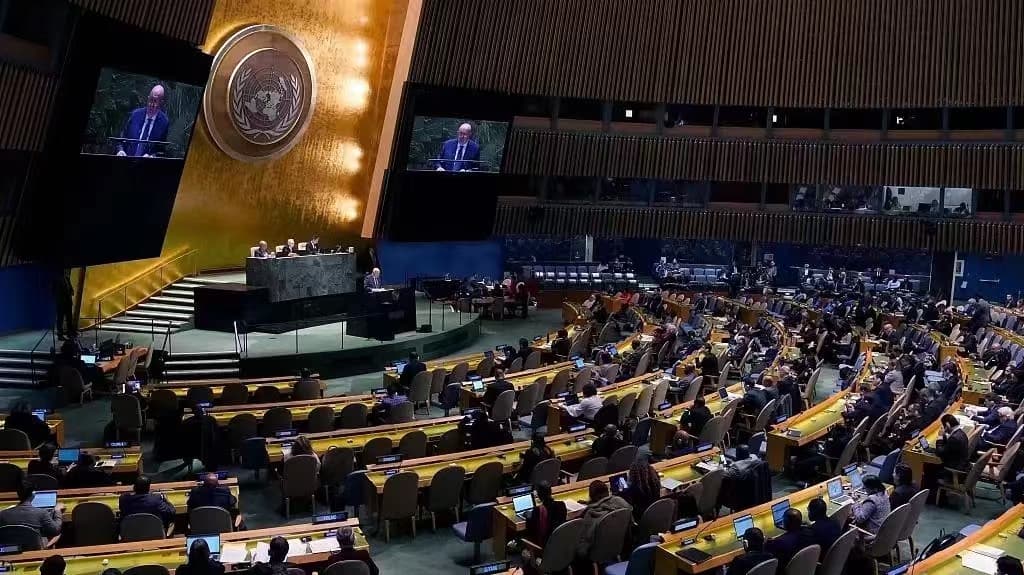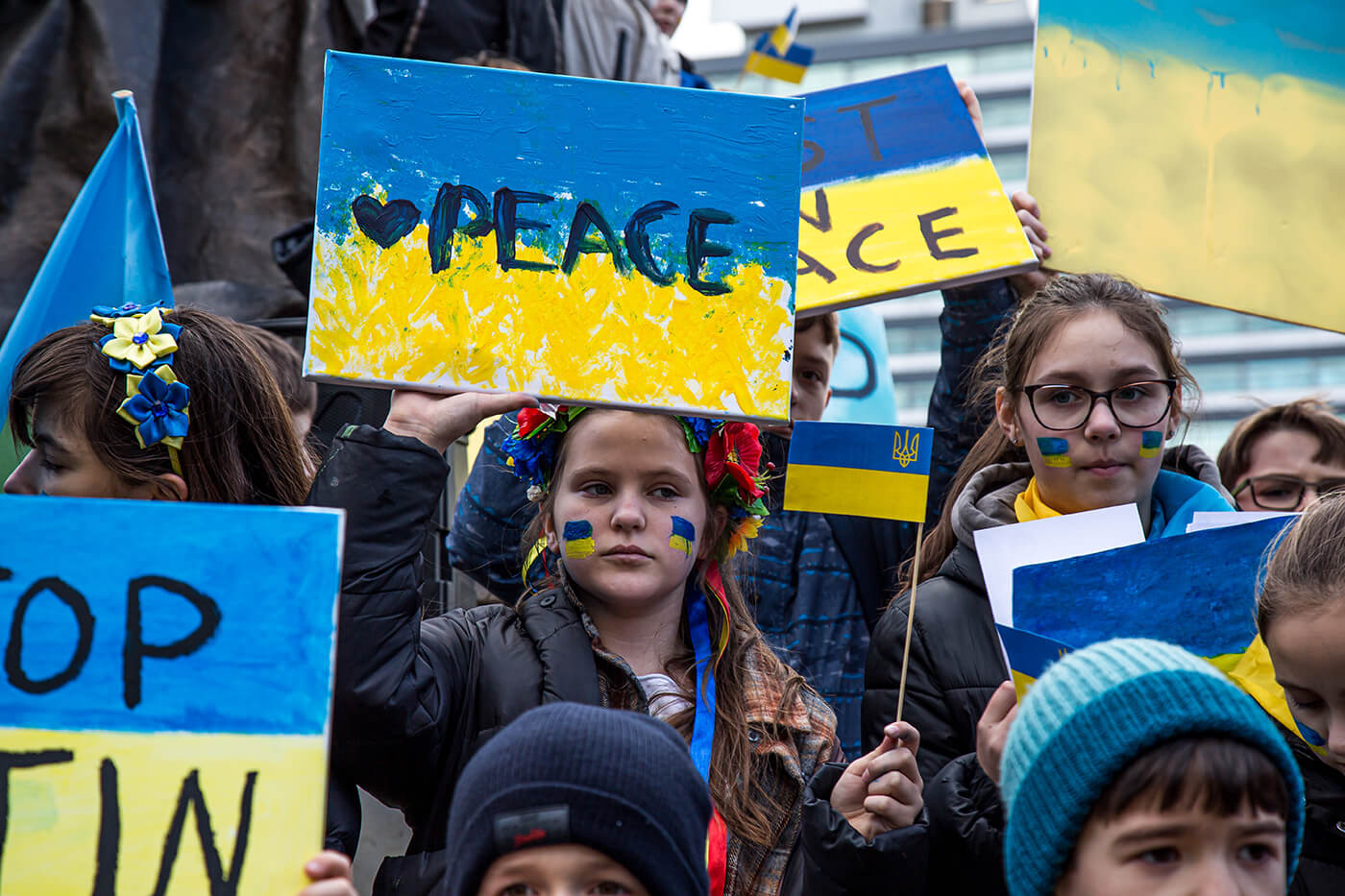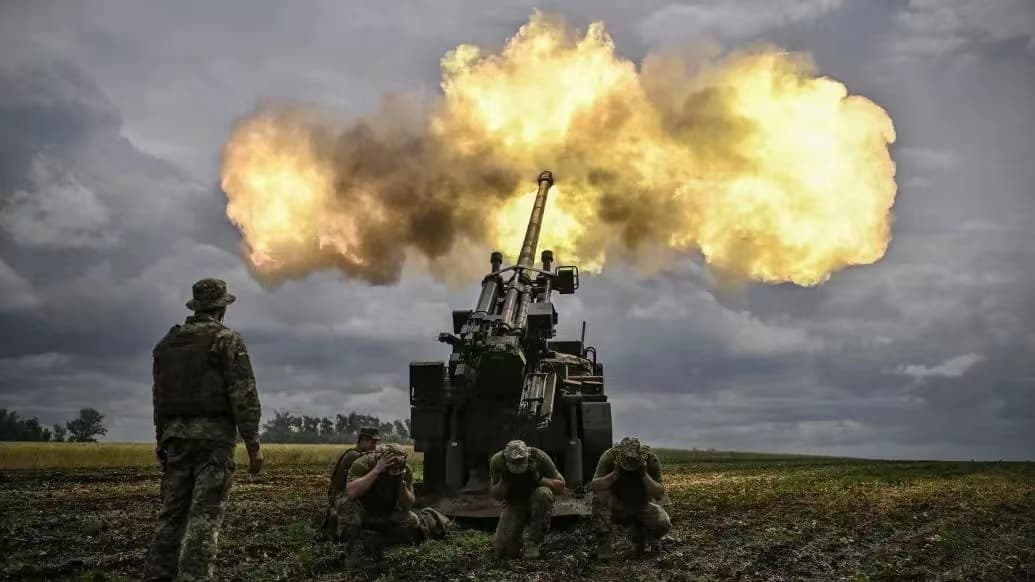
February 24, 2023 marked the one-year anniversary of the Ukraine War. So far, there has been no sign of the conflict coming to an end. Peaceful settlement is considered one of the most important and effective ways to prevent, manage and resolve international conflicts. Generally, international organizations such as the United Nations (UN) play a more effective role in settling international conflicts. However, the fact that both Russia and the US are permanent members of the UN Security Council makes it difficult for the UN to substantially intervene in the Russia-Ukraine conflict.
A positive step, however, was taken in July 2022, when Russia and Ukraine signed a deal brokered by the UN and Turkey to resume the exports of Ukrainian grain via ports on the Black Sea. Besides, the talks around the grain deal also offered an opportunity for the UN to attempt to send a mission into the Zaporizhzhia nuclear power plant. Yet such efforts of mediation failed to solve the core problems of the conflict. The international community then began to turn to the neutral parties that are not involved in the conflict and refuse to take sides, hoping that they can facilitate the settlement. Countries including Turkey, Israel, Vatican, Saudi Arabia, the United Arab Emirates (UAE), and China have all been seen as potential mediators in the Russia-Ukraine conflict. Some other countries and regional multilateral organizations have either offered to engage in the mediation or tried to provide ideas for the political settlement. Yet no significant progress has been made, as there is no sign of ceasefire negotiations between Russia and Ukraine.
In fact, after the outbreak of the large-scale armed conflict in the Donbas region of eastern Ukraine in 2014, both the Trilateral Contact Group (consisting of Ukraine, Russia, and the Organization for Security and Cooperation in Europe) and the Normandy Format (including Ukraine, Russia, Germany and France) were created to deal with the Ukraine Crisis. But all such mediation efforts eventually came to a deadlock due to the disputes over Russia’s role in the crisis, and the support of the US and the European Union to Ukraine. In addition, these also created obstacles for strict compliance with the Minsk Protocol. Many early warnings and predictions about the Russia-Ukraine conflict and the opportunities for successful mediation between the two sides had been either neglected or suppressed before the outbreak of the conflict in 2022. And a series of relevant mediation efforts have also failed to prevent the escalation of the conflict.
The role of third-party mediation in international conflicts depends not only on the resources, strategies and influence of the mediator, but also on the characteristics of the parties to a conflict and the nature of the conflict. For the current stage of the Russia-Ukraine conflict, mediation is more like what realists explains: it is just another version of negotiation; and it is a process of bargaining which only works when conditions are ripe for peaceful settlement.
Current status of the war, both sides’ perception of the war, and unfavorable timing for mediation
What kinds of conflicts are more amenable to mediation? This is one of the most debated topics for researchers working on international conflicts. According to the “Mutually Hurting Stalemate” theory of American political scientist William Zartman, a conflict is “ripe” for negotiation when the parties have reached a mutually hurting stalemate, a situation where both parties realize that they cannot achieve their goals by continuing violence and it is extremely costly to continue. As neither can afford the price of continued conflict, mediation becomes the only way to cut their losses. But before the right moment arrives, fighting remains an important tool to increase leverage in future negotiations.
In other words, as long as both parties believe they can still reap benefits on the battlefield, the third-party negotiation will never work. In this sense, only when Russia and Ukraine are ready to compromise can peaceful settlement take place. There are three reasons for this.
First of all, the progress in a negotiation between Russia and Ukraine highly depends on how the war develops. Both sides formally withdrew from ceasefire negotiation in May 2022. In September, Russia announced partial mobilization and decided to escalate military strikes against Ukraine. From mid-October, the war was settling into a stalemate. When winter came, Russia intensified its attacks on Ukraine’s key infrastructures, while Ukraine’s attack got increasingly closer to the Russian territory. Both sides insist that only when their demands are granted by the other, can the war come to a close and peace finally come. That is also one of the reasons why the fierce fighting continues in eastern and southern Ukraine.
Secondly, the Russia-Ukraine conflict has developed into a war of survival for both sides, which in turn intensified their position of not giving in. The Ukrainian government and its people have made it clear that they are ready to make great sacrifices to defend the country’s sovereignty. Since the public opinion in Ukraine is overwhelmingly opposed to any compromise with the Russian government, it is almost impossible for the Ukrainian government to make a concession on basic issues. A poll conducted in September 2022 shows that about 70% of Ukrainians favor fighting until victory, while over 90% define victory as retaking all territory seized by Russia, including Crimea. The determination and perseverance of the Ukrainian people to resist Russian military action influence both Russia and Ukraine, which leads to a protracted conflict. At the same time, Russia describes the conflict as “special military operation” to protect the Russian citizens who live in Ukraine from being persecuted by the “Nazi-like regime”. And Russia firmly believes that the aim of the West is not to protect Ukraine, but to destroy Russia’s status as a normal state. For the Russian government, winning the Ukraine conflict or being considered as the winner has become the key to whether Russia can survive in the future.
Lastly, both sides believe they can achieve significant success on the battlefield: Ukraine believes it can win the war, and shows no inclination to make a concession to Russia; Russia expects to regain the upper hand on the battlefield through a series of adjustments. In short, when both sides think they can gain more benefits from the battlefield, and are thus unwilling to compromise, it would be hard to make a difference through peaceful negotiations brokered by third-party mediators. And just like in any other wars, the prolongation of the conflict, the mounting losses on both sides, and the warring parties’ consistent refusal of giving up their demands – all these factors make it more difficult for them to make a concession.
The West’s attitude adds barriers to a political solution
Although Western countries have disputes over the settlement of the conflict, and related debates continue, seeking a political solution is currently not a priority for many of them. Many in the West still believe that before Ukraine could gain the upper hand in possible negotiations, they should put off the negotiations until Russia is weakened or preferably defeated. In other words, Western countries and Ukraine believe that it is not the favorable timing for them to negotiate a ceasefire now. In this sense, it is necessary to provide certain military support to Ukraine. The West has not only explicitly expressed its political stance against Russia’s actions, but also crossed many self-imposed red lines, providing Ukraine with advanced weapons and huge security assistance packages.
First, NATO, the EU, and other Western countries have provided a massive package of weapons to Ukraine and sent open and credible signals of support, making Ukraine more determined to continue the fight and more optimistic about its own capabilities. In Ukraine, there is now a growing belief that the enemy can be repelled by military means. However, a prolonged war could probably bring Ukraine’s economy to its knees, and there is great uncertainty as to whether Ukraine is capable of dislodging Russia from the territories it has seized.
Second, the West has imposed unprecedented sanctions on Russia, and its position has intensified Russia’s hostilities and actions, making it harder for diplomatic attempts to work. As far as the Russian political leadership is concerned, Ukraine is never an independent actor or adversary, but a puppet of the US and the West. Russia insists that the West’s hostile policies seek to weaken Russia’s influence on Europe and bring Russia to its knees. In this context, Russia’s motivation for refusing to engage in negotiations may be even stronger if it believes that the West is determined to maintain hostility between the two sides through continued arms support. Even if Western countries call for the resumption of Russia-Ukraine negotiations, the Russian government will not have much confidence in the promises that Western countries may make as the Russia-West relations have not improved.
Lastly, Western countries’ military assistance to Ukraine is likely to prolong and extend the Russia-Ukraine conflict, and continuously undermine the efforts to resolve the conflict through diplomacy and dialogue. And over time, the protracted conflict will become even more complex and difficult to resolve. What’s worse, it may increase the risk of global conflicts. Although the Russia-Ukraine conflict is not a proxy war in its strict sense, it has nevertheless shown some characteristics of a proxy war. In particular, the West’s military assistance to Ukraine has made the Russia-Ukraine conflict gradually evolve into a greater confrontation between Russia and the West. The longer the war drags on, the greater the risk will be for Western countries themselves to be drawn into it. Any military miscalculation by parties involved or accidents could increase the risk of more serious global conflict.
Generally, the two sides’ preoccupation with their own narrow political interests makes it difficult to push forward a formal peace process without a third party. For now, diplomatic activities continue among Russia, Ukraine and other countries. However, the opening of the future peace process in the region and the resolution of specific issues such as ceasefire conditions, reconstruction funds, territorial arrangements, and post-conflict governance will still be inseparable from the mediation and support of a third party.
The Russia-Ukraine conflict reminds us once again that previous practices in conflict resolution have been mostly focused on preventing and resolving internal conflicts within countries, and there is still a lack of a mature and effective mechanism to manage and resolve inter-state conflicts (especially those involving major powers). As inter-state political frictions and conflicts become more frequent, there is indeed an urgent need to establish many more effective multilateral mechanisms through dialogue and cooperation to prevent and resolve conflicts, and to find ways for peace among countries.






